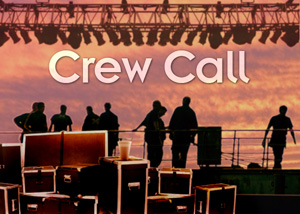Digging Up Jimmy Hoffa
By Joel Rollins
Well, after last month’s column, I received a lot of email and even a number of telephone calls from old acquaintances. It tells you a lot about the issue that the calls accused me both of being pro- and anti-union.
Please let me disappoint both groups to say that I am neither. I am a pragmatist.
For the first 10 years of my career, I worked for and ran small audiovisual companies. As is usual in small business, we often bit off more than we could actually chew, and we all wore a lot of hats. Shows often involved first loading the trucks, then driving them to another city, then unloading them, then setting up a show, operating it, striking it, loading it up again and driving it home. I often joke that this is where I picked up my 12-cups-a-day coffee habit.
But we were very young.
It is those kind of circumstances in which we developed our opinion of union venues. Not only did they charge what we considered outrageous rates for help, they insisted on much larger numbers of personnel than we would have. Not only that, but they insisted on specialists for various positions. And, worst of all, they wouldn’t let us work. So we attempted to work around them. And, for the times, we were not an unusual company. So this is also where the venue unions developed their opinion of the audiovisual suppliers.
Now, to be fair to those of us in the audiovisual industry, it was a time of great technological change, and there were times that the unions were not keeping up. We were moving rapidly into video and video projection, and most of the locals had little experience in the technology. This meant that we were often charged for operators who couldn’t operate. Nothing was more frustrating than having to stand over the shoulder of someone who had never seen the inside of the projector, but was our union projectionist. If any of you have ever tried converging an analog video projector that had over three dozen potentiometers inside it by instructing someone who had never seen them, you know what I mean. So we developed a negative, if one sided, opinion of most of the union locals.
But later in my career I moved up to operating a couple of companies that did large touring shows. Suddenly, the unions were my friend.
Why?
Well, to start with, the shows went into trucks that were too large for us to drive. This meant that we could not cram all of our own personnel into the trucks, and would have had to fly them to the show. So, suddenly, the expense of using union labor was actually a savings. Plus, this enabled us to extend the use of our own personnel and do more shows.
Around the same time, the unions were catching up in technology. In fact, one of the things that changed my opinion about using union labor was that our local, and then several others, invited me in to teach their people video projection and multi-camera setups. This allowed me to get to know a number of the union operators, and gave me a good evaluation of their skill sets.
As with any group of people, getting to know some of them might change your opinion. It was during this time in my career that I became aware of the value of working with the venue unions, rather than against them. So let me give you a few of the value propositions of a well-organized union local in a venue:
- The Local is local. Nothing is more helpful than having crew members who know the area, its suppliers, its hardware and electronics stores, and even its up-and-coming garage bands. When it’s 3 a.m., and you need five more wireless microphones by 6 a.m., nothing beats local techs.
- They’re at home in “their” house. All facilities have their “gotchas.” Nothing can cost as much time and effort as not knowing them — and they are usually things the facility management or salespeople don’t know, don’t care about or try to hide. That circuit is no good. This mic jack is intermittent. The local fire marshall won’t come in until late, and always goes nuts about cable ramps. That dock has a bad leveler — and on and on.
- These folks do shows. Every single day. And that counts for a lot. While they may indeed not be totally up on your particular models of equipment, they will be used to taking instruction. And, if you let them, they can contribute ideas and experience to improve your overall show.
- Safety first. Yes, some union rules regarding the length of shifts, rest and meal breaks, and numbers of personnel can be restricting. But those rules, mostly, are there to improve safety. I used to say “nobody gets killed in AV” but I was wrong. In the last few years, we have regretfully seen it happen. I never want to see it happen on one of my shows, and if the rules help prevent me, or my client, from “pushing it,” then I’m glad.
Is it all positive? Of course not. As with any group of people, there are good ones and bad ones, qualified hands and pretenders, cooperative techs — and difficult ones. But, as my first warehouse manager was so fond of saying, “this is this.”
If you’re going to be in the staging business, you learn to make the most of the “hands” you are dealt.
rAVe Rental [and Staging] contributor Joel R. Rollins, CTS, is general manager of Everett Hall Associates, Inc. and is well known throughout the professional AV industry for his contributions to industry training and his extensive background in AV rental, staging and installation. Joel can be reached at joelrollins@mac.com






